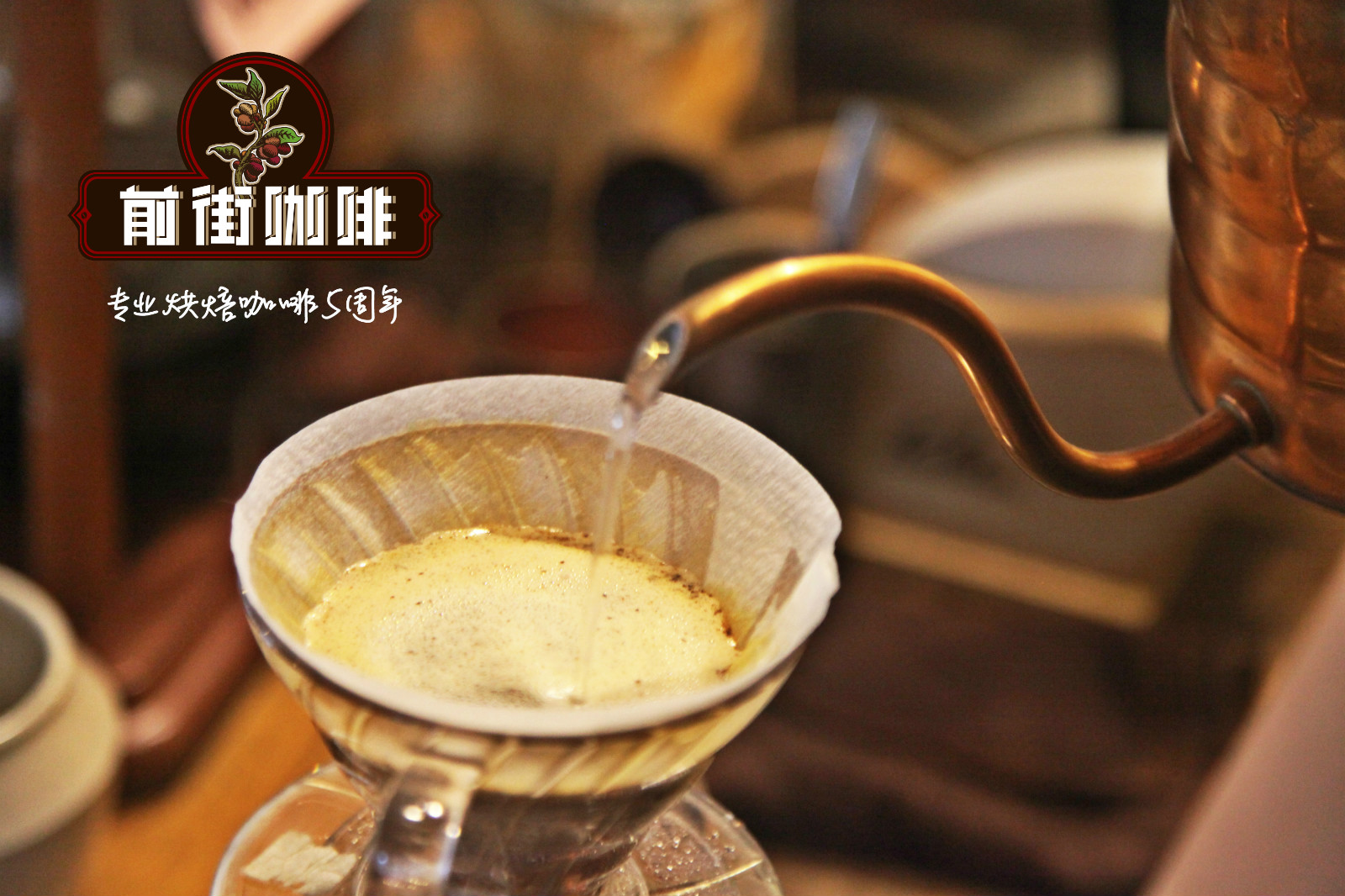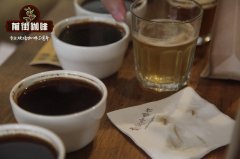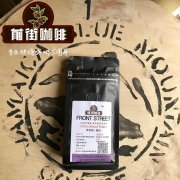Kenya AA | what is the flavor of SL28 and SL34 of Gikanda Ndimaini farm in Ntami?

Professional coffee knowledge exchange more coffee bean information please follow the coffee workshop (Wechat official account cafe_style)
Kenya AA | what is the flavor of SL28 and SL34 of Gikanda Ndimaini farm in Ntami?
Kenya is a model country for the production of fine coffee beans. Coffee was introduced from Britain in 1900. Only traditional Arabica did not have the best bourbon species of SL28 and SL34 in Kenya until 1950. All water treatment methods, graded AA PLUS AA AB system, but this is only the difference of particle size uniformity does not represent the difference in quality, the high quality altitude is 4200 to 6800 feet. From 2009 to 2010, due to the influence of global warming and pathological changes, the output decreased and the price rose. After that, the fine coffee continued to rise and the irreplaceable BlackBerry flavor of Kenyan coffee kept the high price of good Kenyan beans. Therefore, direct coffee is the first choice to buy better quality Kenyan beans, larger beans with high wine BlackBerry acid, can be harvested twice a year, 4-June is the secondary season. December is the harvest season of the main production season.
Most of the coffee beans are graded by the Kenya Coffee Bureau and sold at the auction venue. The system of public auction can be traced back to the way of auction before 1934. Kenya has 50 licensed agents who send sample beans to their customers for cup testing. Customers can bid for their favorite coffee at the auction. But this approach seems to encourage intermediary agents to erode farmers' income, so in 2006 Kenya opened 32 more independent sales agents to contact foreign coffee buyers directly without going through auctions. however, these must meet the standards such as the Kenya Coffee Agency's guarantee to the quality Storage Bank before they can be sold. The two systems operate in parallel at the same time, and after several years of development, it is the most transparent auction distribution system. The better the quality of coffee, the better the price through the cup, so that more cooperatives and farms are willing to join, but I think the latter can get first-hand information in direct contact with farmers.
Gikanda Ndimaini Ntami Farm in Kenya is a cooperation of several small farmers, together with Kangocho and Gichathaini to form the Gikanda Cooperative, located in Nyeri District, with an average elevation of about 1700 Mel-1900 meters, and handed over to its own Kangocho treatment plant for exquisite treatment. small farmers grow the traditional unimproved traditional variety SL28,SL34, collect fully ripe cherries by hand for water treatment on the same day, and scrub the silver skins with parchment before shipment.
The price of Kenyan beans has remained high in recent years, but the actual farmer's income is less than 1 pound and $1, and there is very little left to pay bank loans after deducting production costs. The biggest intermediate exploiters are Kenyan agricultural dictatorships. These officials do not want to see a more progressive Kenya, if you would like to ask you to support Kenyan beans through the Fair Trade Fair Trade Association system. At least this is a transparent and just coffee. (dispatch from the origin of coffee)
Farm Farm: Gikanda FCS Cooperative Ndimaini Entami Farm (Club)
Grade level: AA
Country country: Kenya Kenya
City City: Nyeri
Region: Karatina town
Altitude altitude: 1600 Murray 1800m
Farm Size farm size: small coffee farmers who grow in small areas.
Soil soil: Red Volcanic Loam soils volcanic clay
Harvesting Method:Hand picked is harvested by hand
Certification Certification: Fair Trade Fair Trade Association
Coffee Characteristics: coffee characteristics
Variety varieties: SL 28, SL 34
Processing System treatment: Full Washed washing drying on African viaduct
Top Jury Descriptions comments: the baking degree measured by the cup for 60 seconds at the beginning of an explosion
Aroma aroma / flavor flavor: strawberry, rose flower, apricot, oolong tea, pear, jasmine, honey, caramel, brown sugar
Acid quality: BlackBerry acid, kumquat acid, blackcurrant, single clean
The complexity of complex is similar to that of other: the field is fresh and fragrant, bright and clean, the aroma of oolong tea is obvious, the sweetness of fruit is slowly produced after cooling, and the fruit is sweeter.
Overall style attributes: tea fragrance, fruit sweet, sour very approachable
Qianjie recommended cooking:
Filter cup: Hario V60
Water temperature: 90 degrees
Degree of grinding: small Fuji 3.5
Cooking methods: the ratio of water to powder is 1:15, 15g powder, the first injection of 25g water, 25 s steaming, the second injection to 120g water cut off, waiting for the powder bed water to half and then water injection, slow water injection until 225g water, extraction time about 2:00
Analysis: using three-stage brewing to clarify the flavor of the front, middle and back of the coffee. Because V60 has many ribs and the drainage speed is fast, it can prolong the extraction time when the water is cut off.
Important Notice :
前街咖啡 FrontStreet Coffee has moved to new addredd:
FrontStreet Coffee Address: 315,Donghua East Road,GuangZhou
Tel:020 38364473
- Prev

AA Nyeri District of Kenya | Gikanda FCS Kangguqi Kangocho Farm SL28, SL 34
Professional coffee knowledge exchange more coffee bean information please follow the coffee workshop (Wechat official account cafe_style) Kenya AA Nyeri District | Gikanda FCS Kangguqi Kangocho Farm SL28, SL 34 flavor? Kenya is a model country for producing fine coffee beans. Coffee was introduced from Britain in 1900, and only the traditional Arabica did not have coffee trees until 1950.
- Next

How should I drink Blue Mountain Coffee? How to tell the authenticity of Blue Mountain Coffee?
Professional coffee knowledge exchange more coffee bean information please follow the coffee workshop (Wechat official account cafe_style) Jamaica Blue Mountain Coffee grading: in terms of quality, NO.1 NO.2 NO.3 Blue Mountain Coffee is divided into four grades: NO.1, NO.2, NO.3 and PB,PB are round beans. According to CIB standards, planted in the sea
Related
- Detailed explanation of Jadeite planting Land in Panamanian Jadeite Manor introduction to the grading system of Jadeite competitive bidding, Red bid, Green bid and Rose Summer
- Story of Coffee planting in Brenka region of Costa Rica Stonehenge Manor anaerobic heavy honey treatment of flavor mouth
- What's on the barrel of Blue Mountain Coffee beans?
- Can American coffee also pull flowers? How to use hot American style to pull out a good-looking pattern?
- Can you make a cold extract with coffee beans? What is the right proportion for cold-extracted coffee formula?
- Indonesian PWN Gold Mandrine Coffee Origin Features Flavor How to Chong? Mandolin coffee is American.
- A brief introduction to the flavor characteristics of Brazilian yellow bourbon coffee beans
- What is the effect of different water quality on the flavor of cold-extracted coffee? What kind of water is best for brewing coffee?
- Why do you think of Rose Summer whenever you mention Panamanian coffee?
- Introduction to the characteristics of authentic blue mountain coffee bean producing areas? What is the CIB Coffee Authority in Jamaica?

